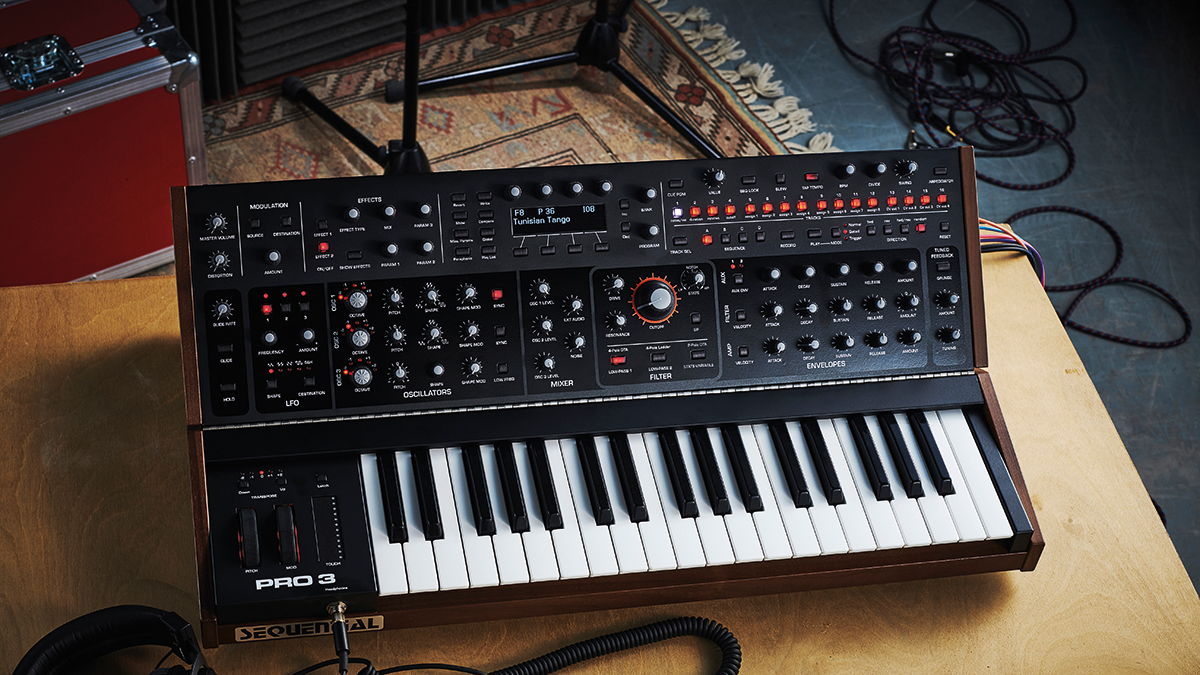MusicRadar Verdict
The Pro 3 is far more than a simple monosynth. It’s a powerhouse of sound design with its own unique voice and endless possibilities.
Pros
- +
Excellent build quality.
- +
Warm and distinctive tone.
- +
A huge array of sound design options.
- +
Surprisingly intuitive.
Cons
- -
SE version is heavy.
MusicRadar's got your back
What is it?
In 2015, when Yamaha handed back the Sequential moniker to Dave Smith, there was much rejoicing from the community (and we expect similar feelings were expressed within the walls of the company) and a new era dawned, bringing with it a selection of hardware that crossed some boundaries, from the much-praised Prophet Rev2, the vintage vibed OB-6 and Prophet 6, to the more recent re-issue of the wonderful Prophet 5.
This left a space in the lineup for something modern and mono that didn’t sit in the same area as the Prophet X but would provide players with a synth that had the familiarity we musicians yearn for yet an experience that was new and exciting. The curtains were pulled back to reveal the Pro 3.
So, what is the Pro 3 and why would you buy it over any of the other Sequential products? Comparisons have been made, whether rightly or not I’m unsure, to both Moog’s Sub 37 and Arturia’s MatrixBrute, both of which we have in our studio.
It’s easy to see why these thoughts cross people’s minds, as there are some similarities: the Moog has a somewhat modern interface with vintage warmth and the Brute offers a similarly extensive modulation system, but in reality, these three machines all differ with just small areas of crossover.

Excellent build
Physically the Pro 3 (we will concentrate on the SE version, with wood panels and tiltable control surface – the standard is much the same, just lighter and with decals rather than silk screen printed livery) is solidly built and hefty enough to inspire confidence in its roadworthiness.
The jacks around the back all engage satisfyingly, from the 1/4” dual outputs to the 1/8” CV in and out patch points. USB is there of course, although it doesn’t offer audio, and there is MIDI in, out and through, plus an audio input.
A stereo headphone jack is upfront and left and it’s worth spending some time using it, as it really highlights some of the sound design options. The Pro 3 is physically notable in some other aspects too.
Want all the hottest music and gear news, reviews, deals, features and more, direct to your inbox? Sign up here.
The wide OLED screen is crisp and clear, showing menu items contextually, as you adjust certain settings, making its size just right. The knobs come in two flavours, none of which feel related to other Sequential synths, with a soft touch rubber feel.
The sequencer could easily be a product in its own right. It’s simple to use but massively useful and fun too
Rotary encoders (the kind that keep on turning) are easy to adjust, dialling in a setting easily with good, positive, notched response.
The potentiometers on the other hand feel very firm and take a good twist to move. I don’t dislike this but I think some users might, although I imagine they will ease up after the bedding in period passes. Either way, all the controls feel well seated and accurate.
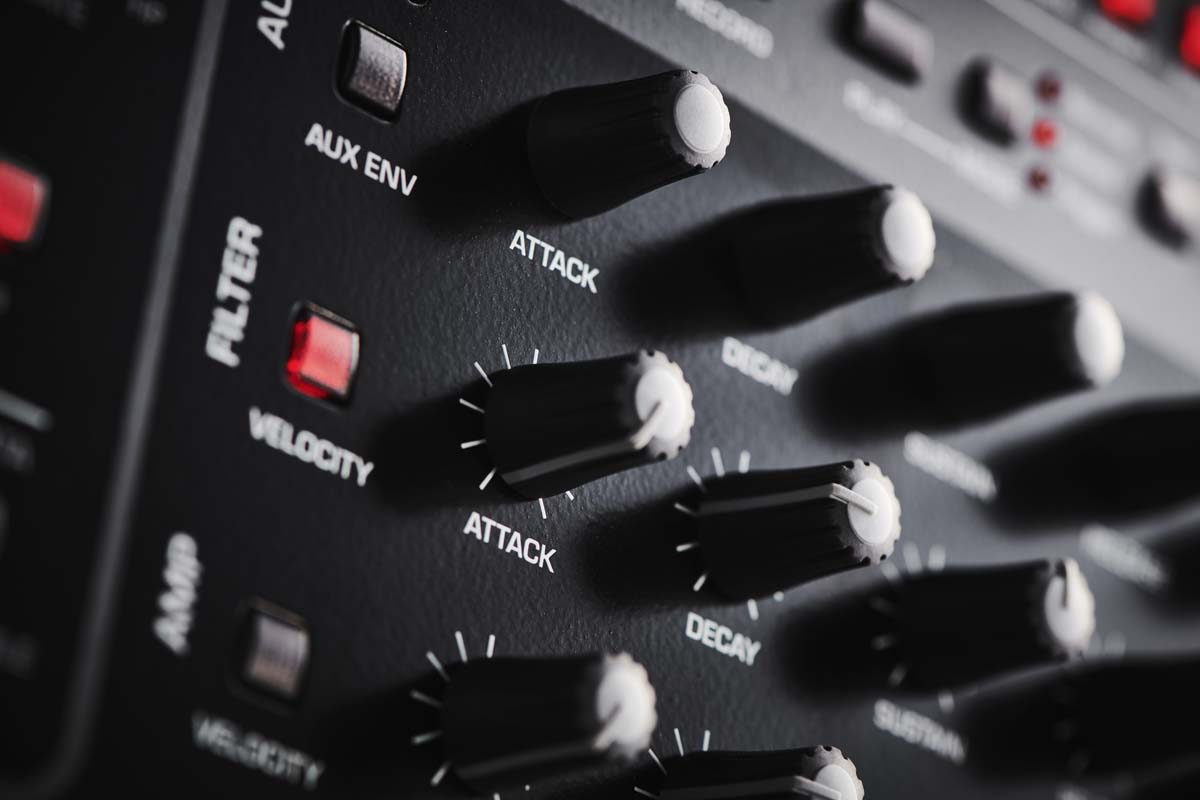
The only element similar to other Sequential hardware is the super bright LED-lit buttons, that I think are the same as used on the Rev2. The mod and pitch wheel feel good too, with similar red lighting and the metal touch strip is one of the best and most responsive I’ve ever encountered. All in all, then an inspiring start, before a note is even played.
Digital effects
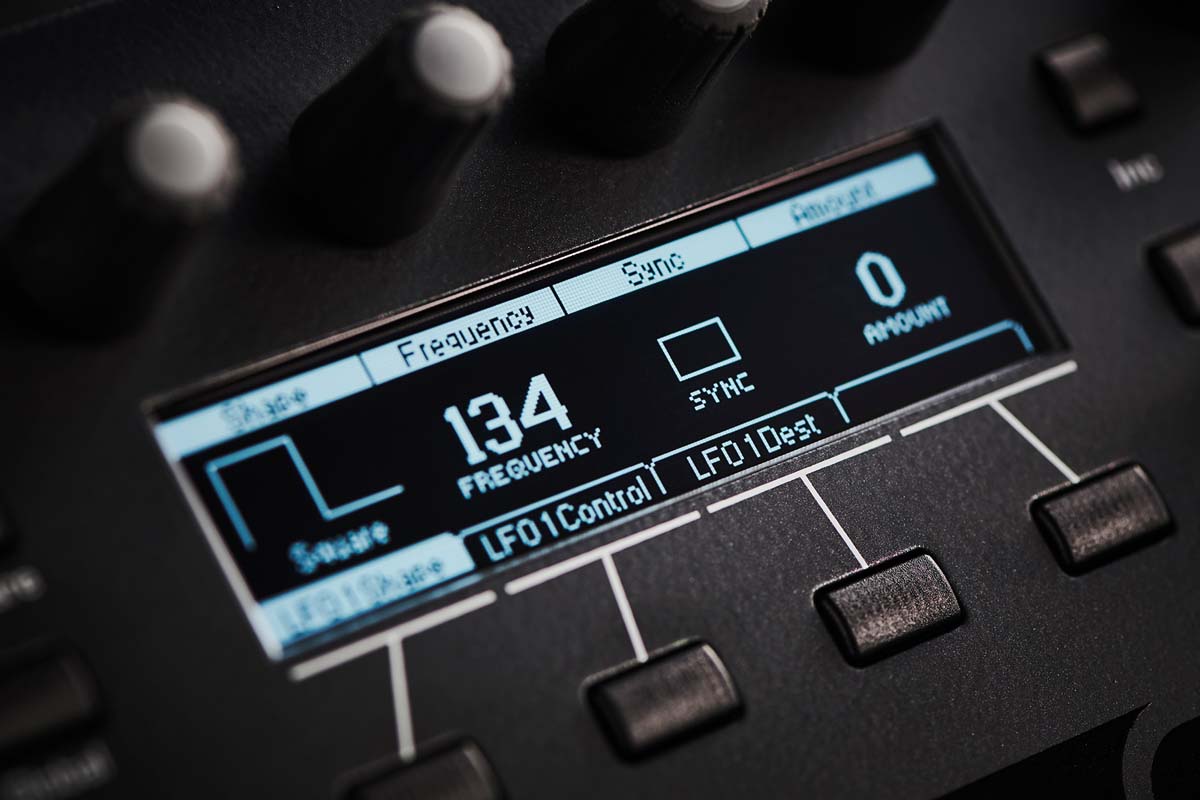
The Pro 3 has dual effects, meaning you can run two at once, with separate modulation and overall control. Often feeling like an afterthought on synths, these are good quality and tied in nicely, so you can modulate them as with anything else. My top picks are the phaser and the super plate. I’m generally not a fan of built-in reverbs on synths but this one is good, although not overly plate-like.
Shimmery and long-tailed is easy with this one, adding to the overall versatility. The stereo delays are also very good with excellent separation. Like so much of the Pro 3, the last 5% is all in controllability and tonal results, which positively shine.
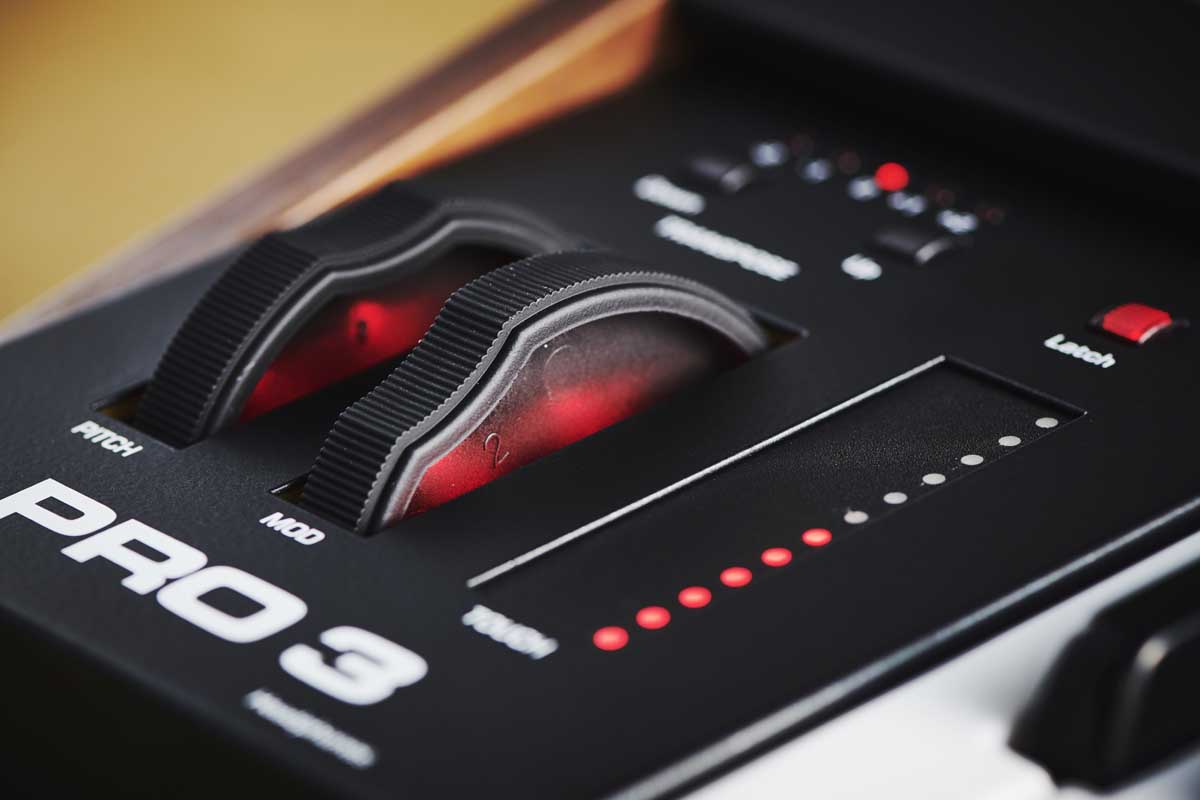
Performance and verdict
Alongside the two VCOs, each with variable saw, triangle and square waves, plus shape mod, the Pro 3 has noise, an external audio input and a fantastic wavetable oscillator, that houses some truly wonderful waveshapes, although not user definable ones, as yet.
The VCOs are warm but detailed, covering five octaves, with a mixer section catering to blending between the five signals. The VCOs really come alive with modulation and that is as true here as anywhere. There are three LFOs with various waveshapes, including a sample and hold, that range from almost stopped to just into audio range.
As with the Rev2 you can choose one and set the destination by simply adjusting the corresponding knob and setting an amount. Simple, fast and keeps the creative juices flowing.
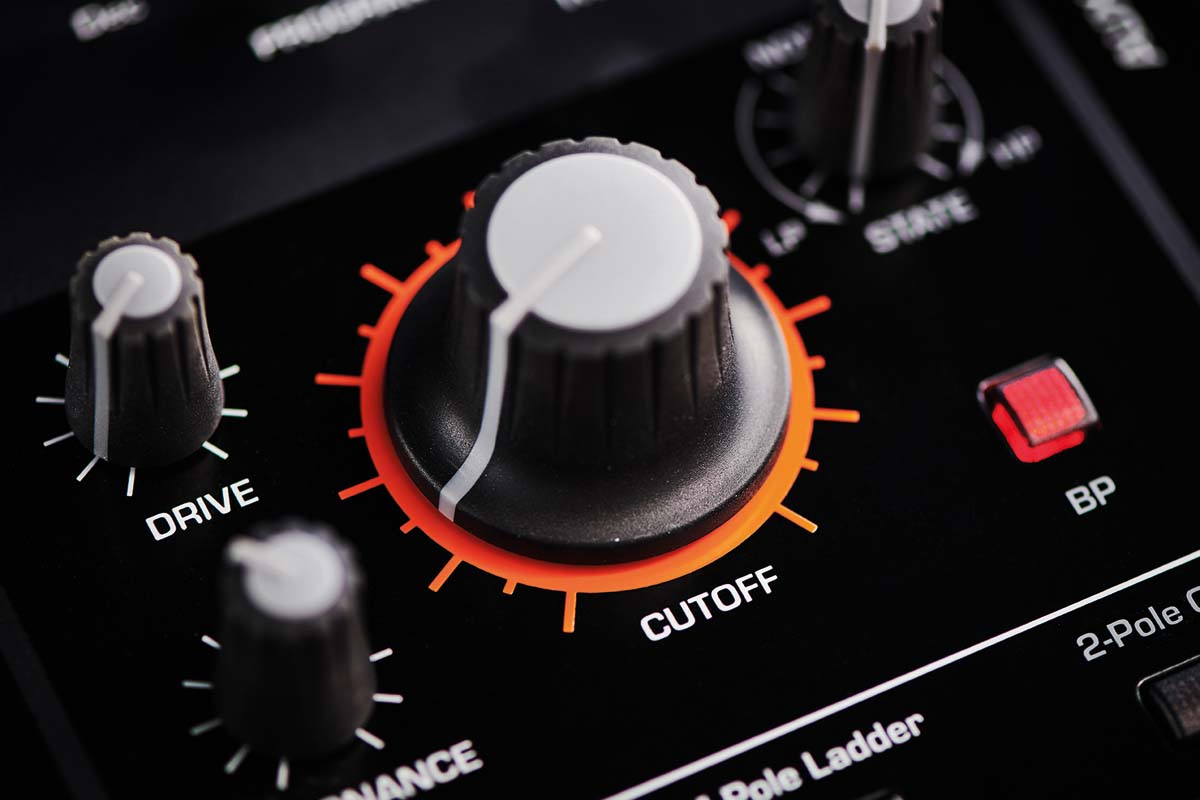
There is also a very comprehensive mod matrix, which is equally intuitive and the OLED screen helps keep everything in check with its immediate feedback and simple navigation. 32 custom slots are available alongside the preset sources ranging from mod and pitch wheel to aftertouch.
On to the filter then. Or, more accurately the filters, as there are three, each giving a nod to flavours of the past, with cutoff controlled by the giant central encoder. First up is a Prophet 6 style 4-pole low pass, next a Moog(ish) ladder with self-oscillating resonance, then an Oberheim style SEM 2-pole, with variable low and high pass (so notch).
On to the envelope generators, of which there are four, loopable ADSR type, one fixed for the VCA, one fixed for filter and two freely assignable. These envelopes cover a lot of ground, from the snappy to the oh so slow, great for evolving ambient patches, which brings us back to the sound sources.
The Pro 3 might be seen as a monosynth but it is a three-voice paraphonic synth making this a versatile beast. The way it cycles through the voices makes it easy to get complex and creative with arpeggios and sequences, in tandem with different octave settings per voice.
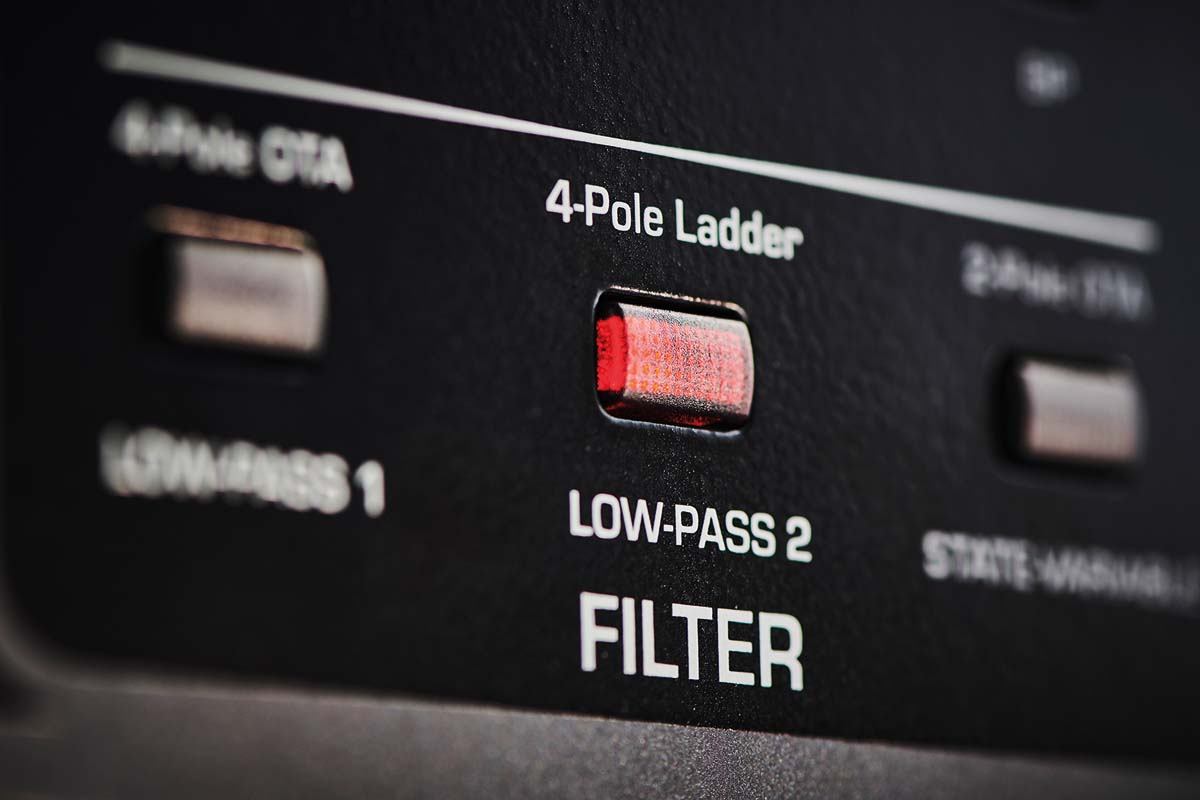
Stunning sequencer
The sequencer could easily be a product in its own right. Four tracks at 16 steps (yes they can be chained for 64 steps) alone would be good but here there is so much more, from swing to programme change mode, so the notes keep playing as you swap patches. Best yet is mod sequencing.
Hit play, then hold record and turn a control. The sequencer records that data, which is even editable after the fact. So simple to use but massively useful and fun too.
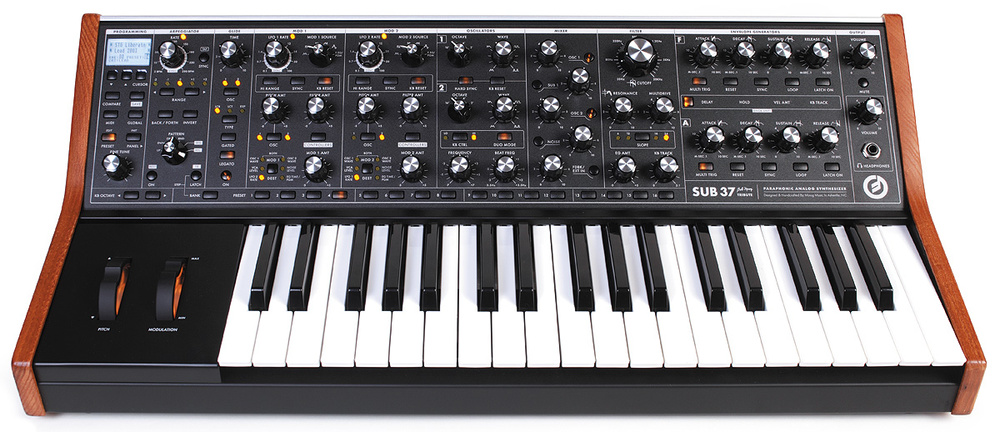
• Moog Sub 37
Moog’s Sub 37 has ‘that’ ladder filter sound, plus a great sequencer, though with far less ability than the Pro 3.
• Arturia MatrixBrute
The Arturia MatrixBrute also offers three-voice paraphony and an extensive modulation system but has a more metallic tone overall.
For me, the Pro 3 is all about the tone and the experience. It does pretty and subtle well but where it shines most is when you add a little grit, which can be in three ways. The filter has a pretty standard drive control and it sounds good but there is a standalone distortion section, offering everything from a little dirt to screaming saturation. Not content with that, there is also a Tuned Feedback section and here you can lay on thick layers of harmonically rich drive to really transform a patch.
The Pro 3 is far more than a simple monosynth, or even paraphonic synth. The abilities of each section combine to make this a true powerhouse of sound design. The tone has elements of what’s gone before but it is its own beast. The drive sections are outstanding and the mod matrix, in tandem with the fabulous sequencer, make this one of the most versatile synths out there.
MusicRadar verdict: The Pro 3 is far more than a simple monosynth. It’s a powerhouse of sound design with its own unique voice and endless possibilities.
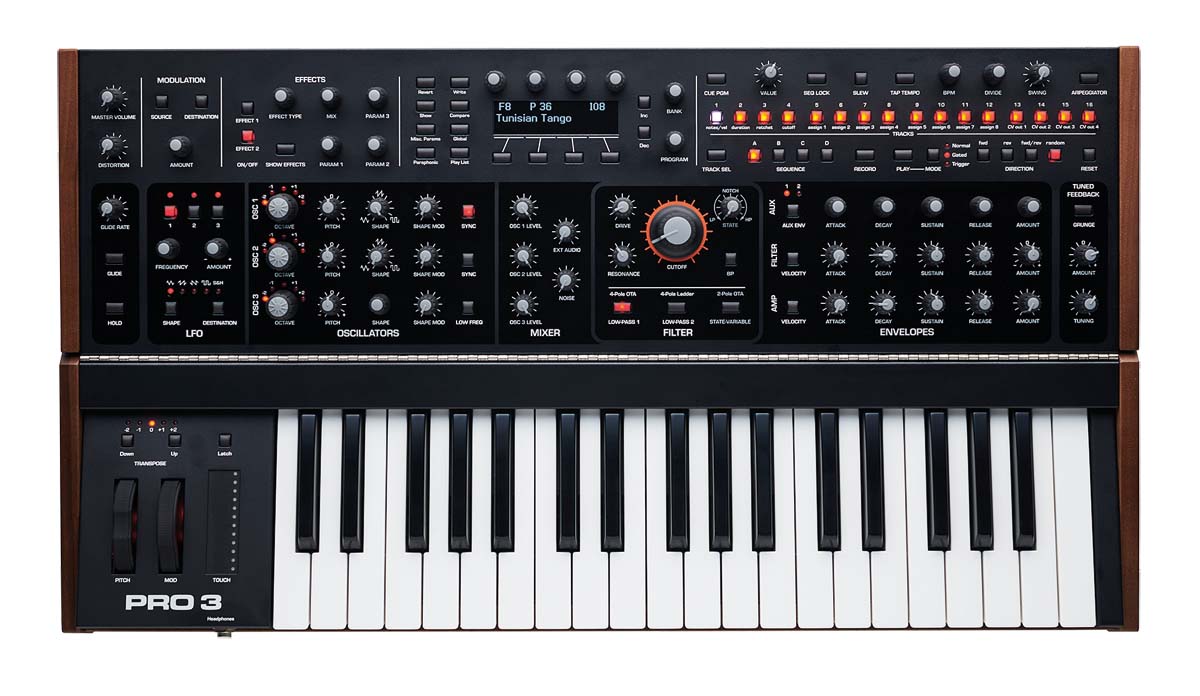
The web says
"Sequential calls this the Pro 3 the best analog mono synth that they’ve ever made. It’s the spiritual successor to the classic Pro-One, but it expands on the original in about every way possible, while retaining the original’s beefy sound and hands-on tweakability."
Synthtopia
Hands-on demos
Ricky Tinez
Andertons
Sonicstate
Red Means Recording
Perfect Circuit
Specifications
- KEY FEATURES: Three-oscillator hybrid analogue/digital paraphonic synth, Fatar keybed with velocity and aftertouch, 37 slot mod matrix, Four track, 16 step sequencer, SE version has wooden end cheeks and three-position tiltable control surface
- PRICING: Pro 3: $1,400, Pro 3 SE: $1,900
- CONTACT: Sequential
